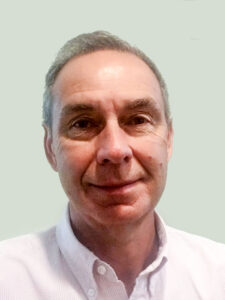Clinical Researcher—December 2023 (Volume 37, Issue 6)
PEER REVIEWED
Steven Eric Ceh, DPM
Becoming an independent consultant in clinical research requires taking a number of steps and dwelling on several considerations. This article provides a comprehensive look at professional development interwoven with my own experience working in clinical research as an independent consultant/contractor, including how I (and others) entered the profession, built and maintained my experience base, and launched my own LLC, along with my perspectives on professional development as it relates to clinical research.
Getting into Clinical Research
The pathways toward a career in clinical research are varied. First, there are professional degrees such as PhD or MD, the training for which intentionally leads toward a career as a medical scientist working in drug and device development. The U.S. Bureau of Labor and Statistics recognizes this occupation and has detailed description on how to pursue it listed in its Handbook. However, this and related jobs are not directly connected to working with research participants. For example, if you search the same database for any sign of entries for “clinical research investigator/principal investigator (PI),” “clinical research associate (CRA),” or “clinical research coordinator (CRC),” you will be out of luck.
While an investigator is usually a medical doctor, apart from some licensing requirements for certain aspects of a CRC’s duties, there are no formal prerequisite degrees for them or for a clinical CRA. While this affords flexibility and diversity on becoming a CRC or a CRA, it may require more effort in creating one’s professional path. It also leads to some fantastic stories on how individuals began their work in clinical research.
My journey in clinical research began in the early 1990s. While reading the local newspaper in Austin, Texas, I came across an article on the pharmaceutical industry and wondered if my background in podiatric medicine was relevant to the profession discussed. I made an appointment and visited a local contract research organization (CRO) to speak with several of its employees. I was able to meet a dentist who had transitioned to become a CRA and felt that I could do the same. Several months later, I interviewed for a position and became a CRA.
Later CRO and pharmaceutical company jobs that I held in research came from directly reaching out to their Human Resource departments to discuss employment options. Some of these transitions were motivated by discussions with other research professionals in related fields.
Tales of the Unexpected
The Investigator
An investigator colleague of mine started as a dual major in Pharmacy and Pre-Med. Shortly after completing his residency in Internal Medicine 35 years ago, he became a PI while continuing his medical practice. He served on many hospital committees and taught hospital-based clinical medicine for the local Medical School. More studies and opportunities followed, including working as medical director of a CRO. Eventually, he moved toward full-time clinical research and connected with research colleagues at ACRP, even serving on the Association’s Certified Principal Investigator (CPI) Exam Committee. He joined ACRP’s Association Board of Trustees while continuing to publish and assist with developing training programs and teaching.
The CRCs
I know a CRC who got into research because it was one of the few jobs she could get with a Master of Health Services Administration. Another CRC said a neighbor asked her if she was afraid of drawing blood and wouldn’t mind helping him with his clinic on weekends; that grew into a full-time study coordinator position.
The Project Manager
A project manager of my acquaintance was a young night shift ICU nurse with no social life who was thinking of going to nurse anesthetist school when a friend suggested she apply for a day job at a pharmaceutical company compiling safety reports during the fen-phen crisis. After completing that job, her interest shifted toward clinical research, where she got a job as a CRA. Her management skills became apparent during her four years as a CRA, enabling her to transition into a project management job. Continued success and experience followed, allowing her to move into Clinical Operations Director positions and now service as a Vice President of Operations.
Paths for the Planned and Prudent
A career in clinical research guided by fate or luck may be of historical interest; however, there are now many curriculums designed for students in the early stages of a career in clinical research and for more experienced individuals such as investigators, coordinators, and sponsor representatives who want to expand their knowledge and skills in the field. These include the following programs:
- Internships{1}
- Bachelor of Science in Clinical Research{2}
- Master of Science in Clinical Research{3,4} (Some Master of Clinical Research programs are offered entirely online.)
- Certificate in Clinical Research{4}
- Post Graduate Diploma in Clinical Research{4}
Professional Development
Professional development involves learning to earn and then maintain academic and professional credentials through formal coursework, conferences, and informal learning opportunities situated in practice. It has been described as intensive and collaborative, ideally incorporating an evaluative stage.{5} There are various approaches to professional development, including consultation, coaching, communities of practice, lesson study, mentoring, reflective supervision, and technical assistance.{6}
Individuals may participate in professional development because of an interest in lifelong learning, a sense of moral obligation, and goals for maintaining and improving professional competence by enhancing career progression, keeping abreast of new technology and practices, or complying with professional regulatory requirements.{7,8} This may lead to advancement or change in job, or simply to doing better in a current position. Examples of professional development include college studies, online training programs, industry certifications, coaching, mentoring, and consultation, the intents of which in a clinical research context may be to enhance a worker’s ability to practice safely and effectively and/or to improve medical knowledge and skills in such areas as management, team building, professionalism, interpersonal communication, technology, teaching, and accountability.
Strategies for Professional Development
A central theme to research documentation is “If you didn’t write it down, it didn’t happen,” but when it comes to planning your professional development, perhaps that should be rephrased as “If you don’t write it down, it won’t happen.” Writing things down enables a higher level of thinking. It allows you the freedom to focus on actions to accomplish your goals; imagine building a house without plans.
According to a study done by Dr. Gail Matthews at the Dominican University in California,{9} you are 42% more likely to achieve your goals just by writing them down and sharing them with a friend. Writing things down makes them real and signals your brain that you’re serious about making them happen and increases your sense of commitment. A Harvard Business Study found that people with written goals are three times more successful than those who don’t write down goals.{10}
When I started in clinical research as a CRA, I wrote a very basic professional work plan that included milestones for learning regulations and guidelines (see below), gaining experience in the position whereby I deemed myself competent, and securing several reliable references; completing the CRA certification exam also was a goal before considering embarking on an independent consultant role. Maintaining your competency in your various working roles should always be included in your plan.
Steps to Becoming an Independent Consultant Contractor
For the sake of this article, an independent consultant in clinical research would be an individual working on a contractual basis in the role(s) in industry such as a monitor, study coordinator, project manager, medical writer, statistician, data technician, regulatory specialist, quality assurance auditor, etc. A hybrid role is possible based on your experience level when you decide to work as an independent contractor. For example, a well-experienced CRA could also have the ability to perform a site audit and/or prepare one for an audit.
- Develop, maintain, and advance your knowledge and experience level.
A significant part of one’s development is tied to learning and maintaining the knowledge and skillsets of a desired profession. Core knowledge items include industry regulations, accompanying guidances,{11} and Good Clinical Practice (GCP) references.{12} In addition, a good understanding of the results of regulatory inspections such as those found on the FDA website{13} fosters habits for avoiding punitive actions.
I began by learning all the relevant FDA regulations and guidance documents. Then, when I started my actual work, I kept an “A-to-Z file” in which I sorted and filed the various forms, reports, processes, and solutions that helped me conduct my CRA work. I was amazed by how compiling this file made it easier for me to organize my thoughts, remember the information better, refer to it when I needed help, and provide substantive insight at team meetings.
A recommended knowledge base list for clinical research professionals includes the following:
- Title 21 Code of Federal Regulations (CFR) Parts 11, 50, 54, 56, 312, 314, 812, 814 and Title 45 CFR Part 46 (The Common Rule) (https://www.archives.gov/federal-register/cfr)
- The Belmont Report (https://www.hhs.gov/ohrp/regulations-and-policy/belmont-report/index.html)
- International Council for Harmonization GCP Guidelines E6(R2), E2A, E8 (https://www.ich.org/)
- FDA Information Sheets and Guidances on such matters as FAQ on Clinical Research, Guide to Informed Consent, Recruiting Study Subjects, Pre-Study Screening Tests, Foreign Clinical Studies for U.S. Submission, Drug Study Designs, Sponsor-Investigator-Institutional Review Board (IRB) Relationship, FDA Inspections of IRBs and Investigators (https://www.fda.gov/industry/fda-basics-industry/guidances)
- FDA GCP Inquiries (https://www.fda.gov/science-research/clinical-trials-and-human-subject-protection/good-clinical-practice-inquiries)
- Industry literature such as articles from Clinical Researcher, Journal of Clinical Research Best Practices, SOCRA Source
In conjunction with the start of your work, it is also important to consider establishing a mentor, a role model to ask questions/shadow, a network of peers, and study groups. There are a variety of services which focus, at least in part, on connecting similar people to one another in the same industry, such as Job Share Connect, Skout, and Meetup. These can help you progress in your career and may be the foundation for subsequent steps.
A certification goal in your area of expertise is an excellent addition to your written professional plan. Preparing for certification can strengthen areas of weakness and make you better at your job.{14} Certification is a surrogate for quality and recognition for your accomplishments.
- Form a company (i.e., LLC or S corporation).
Once I felt that I had an adequate competency level as a CRA, which was after seven years in the industry working at a CRO and pharmaceutical company, and having a number of personal references for networking, I decided to explore becoming an independent consultant. I would be remiss if I did not strongly advise taking your time to carefully consider this option, insofar as the pros/cons of being a consultant contractor and thinking through and writing a business plan for marketing yourself, identifying clients, and negotiating a contract.{15}
Certainly, timing is important in launching your career as an independent consultant. With that, I was fortunate enough to know someone who needed a full-time contract CRA, which enabled the transition to be easier…for me. Some choose to start with part-time availability or to service several contracts at once. How you launch yourself as a consultant should be ultimately prefaced on your comfort level and personal family situation.
For small business owners or sole proprietors, an LLC is often the easiest and most cost-effective way to incorporate. If you’re a sole proprietor, it might be best to establish an LLC since your business assets are separated from your personal assets. You can always change the structure later or create a new company that’s an S corporation. An S corporation would be better for more complex companies with many people involved, since there needs to be a board of directors, a maximum of 100 shareholders, and more regulatory requirements.{16}
In my case, I opted to create an LLC and had a local lawyer assist with the paperwork and filing. The cost was several hundred dollars. Another option to create your LLC is to use a legal entity via the web, such as Legal Zoom.
Once I decided to transition to an independent consultant role and established my LLC, I updated my written professional plan to include writing one or more articles for an industry journal, to speak at a large conference, to volunteer in some way, and to teach others in the industry as opportunities arose. Maintaining your competency in your various roles as an independent consultant is inherent in your plan.
- Establish a business bank account.
You want to create a business bank account so that the transactions of your business are transparent, separate, and not co-mingled with personal actions. I chose a local bank which I could physically visit or mail documents to.
- Secure business credit card(s).
It is strongly recommended that you have at least one credit card dedicated to your business; it doesn’t have to be a “business” credit card just so long as it is strictly used for your business, thereby avoiding co-mingling of business and personal information. Many contractors opt to use a card with a cashback option—particularly with a higher rate for travel transactions, since a majority of your business credit card purchases will be in the realm of airline tickets, hotels, and restaurants.
- Obtain state licensing.
You will need to find out what documents, such as licensing, need to be completed for the State your company is based in. Also confirm if there are requirements for annual reports or other filings.
- Obtain E&O insurance.
Most of your prospective clients will require that you maintain a certain level of E&O (errors and omissions) insurance as a self-employed professional, and this can come from a number of available sources.
- Obtain healthcare insurance.
The largest potential expense for an independent consultant is healthcare insurance. If your spouse or partner has an option for you to be covered, that will probably save you a lot of money. Otherwise, you need to contact a healthcare vendor to identify the best coverage policy for you. If you happen to be a veteran, the VA Medical system is certainly an option for your healthcare needs.
- Take care of quarterly taxes.
As a consultant, you will most likely need to set up paying of quarterly taxes, since you will probably be paid as a 1099 employee. I recommend that you meet with a tax preparer and/or accountant to discuss this and the running of your business. This individual should be able to provide guidance on options for operation of your business (i.e., bookkeeping services or mechanisms for you to do all or some of the related tasks). In my case, there was a SCORE (Service Corps of Retired Executives) program in my area which holds meetings to assist small business owners establish and grow their business. I was able to develop my own forms to keep track of income, expenses, and other information necessary to file required reports and complete my income tax forms.
- Set up a SEP-IRA.
As a consultant, you have the option of setting up a SEP-IRA in which you can fund up to 25% of your compensation. Your accountant or tax preparer can assist with setting up this type of account.
- Don’t forget the time/expense bookkeeping.
As indicated above, as a consultant, you will need to keep track of information related to your business; you can employ someone or do some or all of it yourself. I chose to meet with an accountant/tax preparer who provided me with the necessary information to develop my own files to keep the time, expense, and other related information necessary for him to prepare my taxes as well as have in case of an audit. I gradually learned to prepare my own tax returns.
- Attend to other files (summary, mileage, invoice receipt/payment, etc.).
Besides the basic files related to documentation of your expenses and time, there are other documents which facilitate the preparation of your taxes and provide information on your business, in general. Again, these files were the result of meeting with an accountant/tax preparer and involved such things as a mileage and utilities log (if using your home as office space), insurance payment information, tracking invoice for submission and receipt of client payments, income log, healthcare payment log, real estate tax payment log, etc.
- Equipment
Basic equipment needed by a contractor would include a file cabinet/fire-safe storage, phone, computer with basic software, backup drive, internet and video conference capabilities, and a multipurpose machine (i.e., print, copy, fax, scan). You can create a business e-mail address by adding an account to your existing e-mail provider. If you set up an office in your home, you should make that space totally dedicated to your business purposes.
Working as an Independent Consultant Contractor
Once you begin your first contract as an independent consultant, chances are that, if you work hard and do a good job, you will be offered repeat business. As well as focusing on your contracted job, it doesn’t hurt to speak up if you see something that would help the company with its projects. Networking with a couple other contractors also can lead to work, especially when they have a contract which needs additional personnel. Social media sites such as LinkedIn can offer another means of networking to find work. Maintaining ties with a couple of professional recruiters who offer good hourly rates for your work should be considered as well. However, whenever you can contact a company directly and negotiate a contract with it, this will usually result in the best compensation rate.
Traveling, and your willingness and ability to do so, will have a major impact on your potential revenue. I have a few specific recommendations in that regard:
- I used carry-on luggage whenever possible; that saved me a lot of time on both ends of my trips.
- Pack wisely and efficiently. I kept a separate toiletry bag to facilitate packing. I always brought a sweater or light jacket for use as a needed comfort en route or onsite.
- Eat smart. Get to know what works for you when traveling (i.e., timing and amounts of meals, fluids, and snacks). Remember, you don’t have to eat or drink the full, allotted daily allowance; pace yourself.
- Make provisions for exercise either at a gym in or near the hotel or walking in the area. I always liked when it was possible to walk to and from a site from my hotel. Maintaining your stamina facilitates your ability to travel and work as a consultant.
Continue to grow your professional network; begin to shadow inspiring mentors in desired advanced positions. Consider starting a journal club{17} and keeping a reference file that includes various questions/answers from your industry journals.
There are myriad other resources to maintain your knowledge about the clinical research enterprise and the overall life sciences industry, including https://about.citiprogram.org, CenterWatch, Barnett International, and https://www.mycme.com.
Continue to maintain competency; however, your training should now involve modes which go beyond GCP knowledge to include real-life situations. Use of online Continuing Medical Education programs with guest lecturers is also useful to keep abreast of changes in your disease condition(s) area of expertise.
Seeking advice from a mentor is possibly more important as you advance in your career to assist you in pursuing the job that is the best fit for your experience and personal status. Working with mentors is a proven method for achieving next-level goals.{18} One should also consider having a critical friend. A critical friend is a trusted person who asks provocative questions, provides data to be examined through another lens, and offers critique of a person’s work as a friend (e.g., a CRA helping another CRA). A critical friend takes the time to fully understand the context of the work presented and the outcomes that the person or group is working toward. The friend is an advocate for the success of that work.{19}
Any activity that involves advancing your career should include a review (and update) of your professional written plan, accordingly.
Giving Back (or Paying Forward) to Advance the Industry
Not enough attention in clinical research has been paid to giving back and growing the profession. Once you become experienced and competent in your professional career, you should consider doing something in that regard to advance the profession. Here are my suggestions:
- Write journal article(s) and develop other publications (training manuals, monitoring guides, etc.)—Quite often, the industry moves forward by those who put forth standards and ideas. Examples of popular journals for clinical research personnel include Clinical Researcher, Journal of Clinical Research Best Practices, Journal of Clinical Investigation, SOCRA Source, and Journal of Medical Devices.
- Volunteer—Many people overlook volunteering and miss out on meeting new people, learning and doing different things, and thereby expanding their reach in the process. Teach the public what our efforts to increase its involvement in trials are really all about. Consider giving a presentation on clinical research in your community, speaking at your child’s school, or presenting to underclassmen at your college.
- Present at an industry meeting—Use your work experiences as a basis to present at a professional association’s national or regional conference, or at one of its chapter’s meetings in your area.
- Teach/mentor a new colleague—This would add a dimension to your current position and could blossom into a new aspect of your career. Some individuals have certainly parlayed this opportunity into writing blogs and presenting topics in podcasts.
Personally, I was able to write a number of articles which were published in industry journals and speak at a large conference. I had the opportunity to get involved with several committees and served for 20 years. While working on several contracts, I was able to conduct training sessions on monitoring strategies and mentor new CRAs. So, all of these things are possible; you just need to be open to the opportunities that arise, and while volunteering may sound like a hit on your income, the rewards from the experience far outweigh the non-billable time involved.
Conclusion
This article has provided insight into various ways the clinical research profession may continue to further develop and advance interwoven with suggestions on breaking out as an independent consultant. Avenues for entry, methods to learn, train, and persist were outlined. Examples of routes for giving back provide current members of the profession ways to help further define and propel it into the future.
References
- https://www.indeed.com
- https://caps.wustl.edu/items/bachelors-clinical-research-management/
- https://online.osu.edu/online-clinical-research-masters
- https://acrpnet.org/wp-content/uploads/dlm_uploads/2016/09/accredited_schools_list.pdf
- Speck M, Knipe C. 2005. Why can’t we get it right? Designing high-quality professional development for standards-based schools (2nd ed.). https://eric.ed.gov/?id=ED495574
- National Professional Development Center on Inclusion. 2008. What do we mean by professional development in the early childhood field? https://npdci.fpg.unc.edu/sites/npdci.fpg.unc.edu/files/resources/NPDCI_ProfessionalDevelopmentInEC_03-04-08_0.pdf
- Golding L, Gray I. 2006. Continuing professional development for clinical psychologists: A practical handbook. https://www.wiley.com/en-us/Continuing+Professional+Development+for+Clinical+Psychologists%3A+A+Practical+Handbook-p-9781405154734
- Jasper M, Rosser M, Mooney G. 2013. Professional development, reflection, and decision-making in nursing and healthcare (2nd ed.) https://www.wiley.com/en-us/Professional+Development%2C+Reflection+and+Decision+Making+in+Nursing+and+Healthcare%2C+2nd+Edition-p-9780470658383
- Gardner S, Albee D. 2015. Study focuses on strategies for achieving goals, resolutions. https://scholar.dominican.edu/news-releases/266
- Temsen R. 2019. The Psychology of Writing Down Goals. https://www.newtechnorthwest.com/the-psychology-of-writing-down-goals/
- https://www.fda.gov/regulatory-information/search-fda-guidance-documents
- https://www.fda.gov/science-research/clinical-trials-and-human-subject-protection/replies-inquiries-fda-good-clinical-practice
- https://www.fda.gov/drugs/drug-approvals-and-databases/clinical-investigator-inspection-list-cliil
- Redfearn S. 2018. Research Projects Show Credentialed Principal Investigators and CRCs Perform Better. CenterWatch Weekly. https://www.centerwatch.com/articles/12556-research-projects-show-credentialed-principal-investigators-and-crcs-perform-better
- Stein JM, Abdul-Karrim S, Allen E. 2021. Being an Independent Contractor: Seeking Success in the Workforce. Clinical Researcher 35(6). https://acrpnet.org/2021/08/being-an-independent-contractor-seeking-success-in-the-workforce/
- Majaski C. 2022. LLC vs. S Corporation: What’s the Difference? Investopedia. https://www.investopedia.com/articles/personal-finance/011216/s-corp-vs-llc-which-should-i-choose.asp
- Xiong L, Giese A-K, Pasi M, Charidimou A, van Veluw S, Viswanathan A. 2018. How to Organize a Journal Club for Fellows and Residents. Stroke 49:e283–e285. https://doi.org/10.1161/STROKEAHA.118.021728
- Weeks-Rowe E. 2017. How to Make Clinical Research Mentor Programs Work. ACRP Blog.
- Costa A, Kallick B. 1993. Through the Lens of a Critical Friend. Educational Leadership 51(2):49–51. https://www.ascd.org/el/articles/through-the-lens-of-a-critical-friend

Steven Eric Ceh, DPM, (sec_consulting@sbcglobal.net) is a Consultant with SEC Clinical Consulting, Ltd. In Westerville, Ohio.



